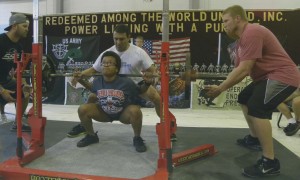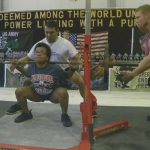How Fellowship Alum Came to Direct His Own Documentary
May 12, 2016

May 11, 2016
One of our Fellows from Delta Class 2013 is coming out with his very own documentary film, We Call Her Yolanda. As a US Marine Corps veteran, Tony Bari was drawn to serve with Team Rubicon in response to the Super Typhoon “Yolanda” that struck the Philippine islands in November 2013. Tony was part of a large scale international relief effort, bigger than he had ever seen before. Tony’s film is the first to follow up with the survivors two years after the storm, highlighting a community of people who know what it means to be resilient.
We talked with Tony about his journey from the military, to the fellowship, to ultimately directing his own documentary.
I was one of those bad kids in school, and I didn’t like school, and I didn’t want to go to college right away, so I joined the military. I learned that military discipline pushes you to do everything — waking up early, commitment, honor, courage — everything. I felt like I was part of a family, with a purpose and a mission. And when I got out, I had to reinvent what I was.
I found The Mission Continues, and was awarded a fellowship. There was nothing ordinary about my fellowship experience. I worked with three or four nonprofits within the United Way, and in a way, I had the breakfast buffet of fellowships. I helped expand a reading program where we brought in students to read to younger kids. I did things like that around education, mentoring, all working with different organizations.

Unfortunately, I put my fellowship on hold when the storm came to the Philippines. I went on a service trip with Team Rubicon to help out. I didn’t go with the intention of creating a film, but I had a camera with me. So many people came to help, and I was glad to be a part of that effort, and a part of history.
When I went there right after the storm, it was like a graveyard. I have never seen so many dead bodies in my life. People trapped under buildings. The Filipino people lost their loved ones and their livelihood. One year later, in November of 2014 I returned with a team to find fisherman with no fish, a coconut farmer with no trees, and villagers still living in a tent city.
There was a big deference after two years, when we came back in 2015. We saw livelihood programs and nonprofits providing fish hatchlings, boats, crops to grow, lumber, and manpower to work alongside local people. Together we were not just repairing the old infrastructure, we were building new and smarter ways of living.

The people were what motivated me to go back and make a documentary about them. I loved how there was a story in each person, and I wanted to give them a chance to talk. I also wanted to keep it genuine and respectful too, so I had to be mindful of when to take pictures and when not to take pictures. You have to build a relationship and get to know these people, so that’s what I did. I had to delicately unravel their story, like peeling away layers of something, and you have to be careful in the process.
I think when people see this documentary, it will make them think differently – it will make them think outside of their immediate problems. I want to give these people a stage to talk to the world. That’s all I want — for them to be seen and heard.
Report for duty in your community with The Mission Continues. Serve with a Service Platoon at an upcoming service event near you or apply for a fellowship. You can learn more about our programs on our website and stay updated on the latest news and announcements on Facebook and twitter.





